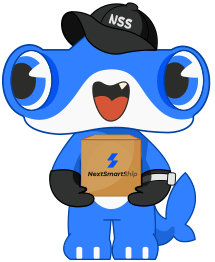Kickstarter’s mission is to ‘help bring creative projects to life.’ Like many other crowdfunding platforms, Kickstarter is driven by backers and creators.
Founded in 2009, Kickstarter has helped creators raise over $6.8 billion and over 55,000 projects backed as of April 2022, according to Statista. Although the platform is considered the leading in the crowdfunding space, there exist Kickstarter alternatives that meet innovators’ needs.
Kickstarter’s all-or-nothing pricing model charges a 5% fee for the total fund raised plus a payment processing fee of 3% + $0.20 per pledge. If the funding is unsuccessful, no fees apply, and no money changes hands.
Aside from the platform’s pricing model, there are a few factors why you may consider alternatives like Kickstarter:
- If your campaigns are targeted to a specific niche like non-profits, startups, etc
- If your campaigns cannot factor in revenue share percentages
- If the kind of support you are looking for is platform-dependent.
- If your campaign goals are continuous, even after the due date
Here are our top ten Kickstarter competitors you can choose for your next crowdfunding project.
Table of Contents
- 1. Indiegogo
- 2. StartEngine
- 3. GoFundMe
- 4. Patreon
- 5. FundRazr
- 6. SeedInvest
- 7. Chuffed
- 8. WeFunder
- 9. Fundable
- 10. Ulule
- Bonus tips for crowdfunding success – FAQs
- Conclusion

1. Indiegogo
If you are just entering the market with literally nothing but an idea and ambition, Indiegogo is the best crowdfunding platform for you. Indiegogo offers the ability to raise funds and the necessary services like marketing, prototyping, fulfillment, and licensing to bring your business idea to life.
Founded in 2008, Indiegogo is active in 235 countries. The website receives over 7.5M monthly traffic visits from these countries, including Italy, New Zealand, Mexico, Germany, Lithuania, Poland, and many other countries in Europe. The platform has empowered over 80,000 creative ideas globally.
Unlike Kickstarter, you can get the money you have raised when you meet specific goals with Indiegogo’s Flexible Funding option. Additional benefits to choosing Indieogogo as your crowdfunding platform include:
- You can continue to raise funds even after your campaign ends with the company’s InDemand offering.
- Indiegogo’s pricing model is a flat 5% fee and 2.9% plus a $0.30 transaction fee.
- The minimum fundraising amount is $500, with all funding options offered on the platform.
Indiegogo is the best for first-time entrepreneurs willing to test and iterate their Minimum Viable Product ( MVP) to build a business. You get the required partnerships to bring your idea to the market under one platform. NextSmartShip, in collaboration with Indieigogo, fulfills orders if you are crowdfunding for physical products.
2. StartEngine
Mr. Wonderful Kevin O’Leary, seen on Shark Tank, is the face of StartEngine. The crowdfunding platform helps startups raise funds from individual investments to provide enough capital to go public.
Founded in 2014, it has over 1.1m monthly website visitors. StartEngine has funded over 500+ offerings from 760,000 individual investors who have helped the platform raise $60 million and many others like Knightscope ( 57M+ raised).
StartEngine crowdfunding works in two ways:
Regulation crowdfunding – enables you to raise $5M each year through their funding portal StartEngine Capital LLC with minimal or no upfront cost in 4-6 weeks.
Regulation A+ – enables you to raise to $75M yearly under their broker StartEngine Primary LLC. The launching period can take up to 6 months costing $50,000 – $75,0000.
3. GoFundMe
Any creative individual from anywhere in the world can crowdfund their project through GoFundMe. Like other alternatives to Kickstarter GoFundMeallows you to run crowdfunding campaigns from your fingertips using GoFundMe mobile app.
Founded in 2010, the GodFundMe website receives over 36.9M monthly visits and has raised over $15 billion in donations from countries like the United States, United Kingdom, Germany, and Canada.
GoFundMe is a good option for individuals or businesses without time limits when crowdfunding compared to Kickstarter, which requires you to set deadlines. The free platform charges 2.9% plus $0.30 payment processing fees.
4. Patreon
Patreon is a crowdfunding platform for creators to generate recurring revenue from their fans. With over 96.2M monthly website visits, Patreon is considered the best Kickstarter alternative for artists to build financial freedom by sharing their art.
The crowd-raising platform was founded in 2013 by Jack Conte, who got frustrated on realizing he had millions of views for his music on Youtube but very little cash flow to sustain his passion. Since then, Patreon crowdfunding has achieved the following milestones:
- Creators on Patreon have made over $2billlion
- Patreon has over 6 million patrons; 4 million joined in the last three years.
- Patreon hosts more than 200,000 creators.
Patreon pricing plans start with a 5% flat fee for Lite, 8% for Pro, and 12% for Premium offerings. Included in the three payment plans is a 2.9% plus $0.30 standard rate for successful payments over $3.
Additionally, Patreon creators get customer support, educational tools, and access to a mobile app to track and analyze their growth progress.
5. FundRazr
FundRazr is the best among all Kickstarter competitors, offering eight campaigns for creators, including recurring donations. With 396.6k monthly traffic visits, the crowdfunding platform has raised $230 million for over 203,000 fundraising campaigns.
Founded in 2008, FundRazr is headquartered in Vancouver, Canada, with a global reach from countries like Brazil and Romania. Anyone can crowdfund on the platform, whether you are a nonprofit or an artist.
FundRazr pricing models have three offerings:
- Simply Free – The best option for personal fundraising and non-profits. The only fee applicable is industry standard third-party processing fee from gateways like Paypal or Stripe.
- Near Free – A 5% flat platform fee optionally covered by your supporters plus the payment gateway processing fees.
- Not Free – A 5% platform fee directly to you instead of your donors plus the 2.9% + $0.30 per transaction charges.
6. SeedInvest
SeedInvest is an equity crowdfunding platform where the supporters of startups are investors. The backers got ‘ skin in the game’ for the startups to succeed by taking an ownership stake in the business.
SeedInvest receives over 424.4K monthly online traffic from countries like Poland, India, and Canada. Over $410 million has been raised on the platform from 620K+ investors. Some of these 235+ high-growth start-ups include; Blockable, Heliogen, and NowRx Pharmacy.
Founded in 2012, SeedInvest was the first crowdfunding platform to allow ordinary people who are not accredited investors to invest in start-ups. If you want to fundraise on the platform, you need to sign-up and fill out an application for the company to do its due diligence before accepting your start-up on their website.
7. Chuffed
Chuffed is an Australian crowdfunding platform for non-profits and charities. The social enterprise firm operates in major countries, including; the USA, Canada, UK, and of course, Australia generating over 99.8k/monthly traffic visits.
Chuffed pricing offers three plans:
- The Keep 100 plan lets funders keep 100% of the donations.
- The donors cover payment processing fees of 2% plus $0.30 per transaction. The cost gets subtracted from the total funds you raise.
- In the Flat Fee option, both a 4.9% platform fee and processing fees get subtracted from the funds you raise. Donors are not asked to cover Chuffed’s processing cost.
If you are considering websites like Kickstarter, Chuffed enables you to target raising funds for social causes. Additionally, Chuffed offers easy integration with tools like MailChimp, Meta, and Google Analytics. With such tools, you get real-time analytics on your crowdfunding campaign performance.
8. WeFunder
Zenefits is one of many success stories crowdfunded on the WeFunder platform. WeFunder is the best Kickstarter alternative for small businesses and startups to crowdfund. With 839.1K website traffic, the platform has funded over 1,979 founders.
Founded in 2012, WeFunder successfully lobbied Congress to pass a law that allows anyone to invest in companies. Since then, the crowdfunding platform has fundraised over $502 million and targets to help over 20,000 funders by 2029. WeFunder charges a flat fee of 7.5%
9. Fundable
Fundable, a subsidiary of Startups. Com platform allows startups to crowdfund in the US. In return, the startup offers rewards or equity to backers. With over 78.6K traffic visits, the platform’s top countries include India, Nigeria, Turkey, and Argentina.
The Kickstarter competitor reports startups that reward supporters less than $50,000 from many backers, while those that offer equity raise more from fewer investors. The Fundable platform charges $179/month to crowdfund and take control of future campaigns.
10. Ulule
Ulule is a European crowdfunding platform for new projects and products made by inventors and manufacturers. The website has raised donations from 192 countries and funded more than 335,000 projects since 2010.
Ulule has over 1.4M monthly website visits from top countries like Switzerland, France, and Belgium. With a 95% success, the crowdfunding platform has collected over $250 million for campaigns, with the leading industries being publishing & journals, and charities.
Bonus tips for crowdfunding success – FAQs
How does crowdfunding work?
Crowdfunding sites help individuals or businesses raise small investments from large groups of supporters as capital for the projects. The backers get various rewards, including promotional items or equity in the company.
Most crowdfunding platforms require creators to set financial commitments before or after their campaigns. For instance, Kickstarter is an all-or-nothing campaign model where refunds are made if campaign goals are not met.
What are the pros and cons of crowdfunding?
Pros
- Centralized supporters community
- Crowdfunding is a great way to test the market
- You can raise a lot of money fast
- Crowdfunding finances your product
Cons
- You can get false product validations.
- Crowdfunding is a lot of work.
- Crowdfunding platforms don’t find ‘investors’ for you.
Conclusion
How you choose from websites like Kickstarter is highly dependent on the project and the requirements needed by the crowdfunding platform for your campaigns to succeed.
Innovators and entrepreneurs building physical products would use Indiegogo, while startups offering equity to their backers would choose StartEngine or SeedInvest to crowdfund.



